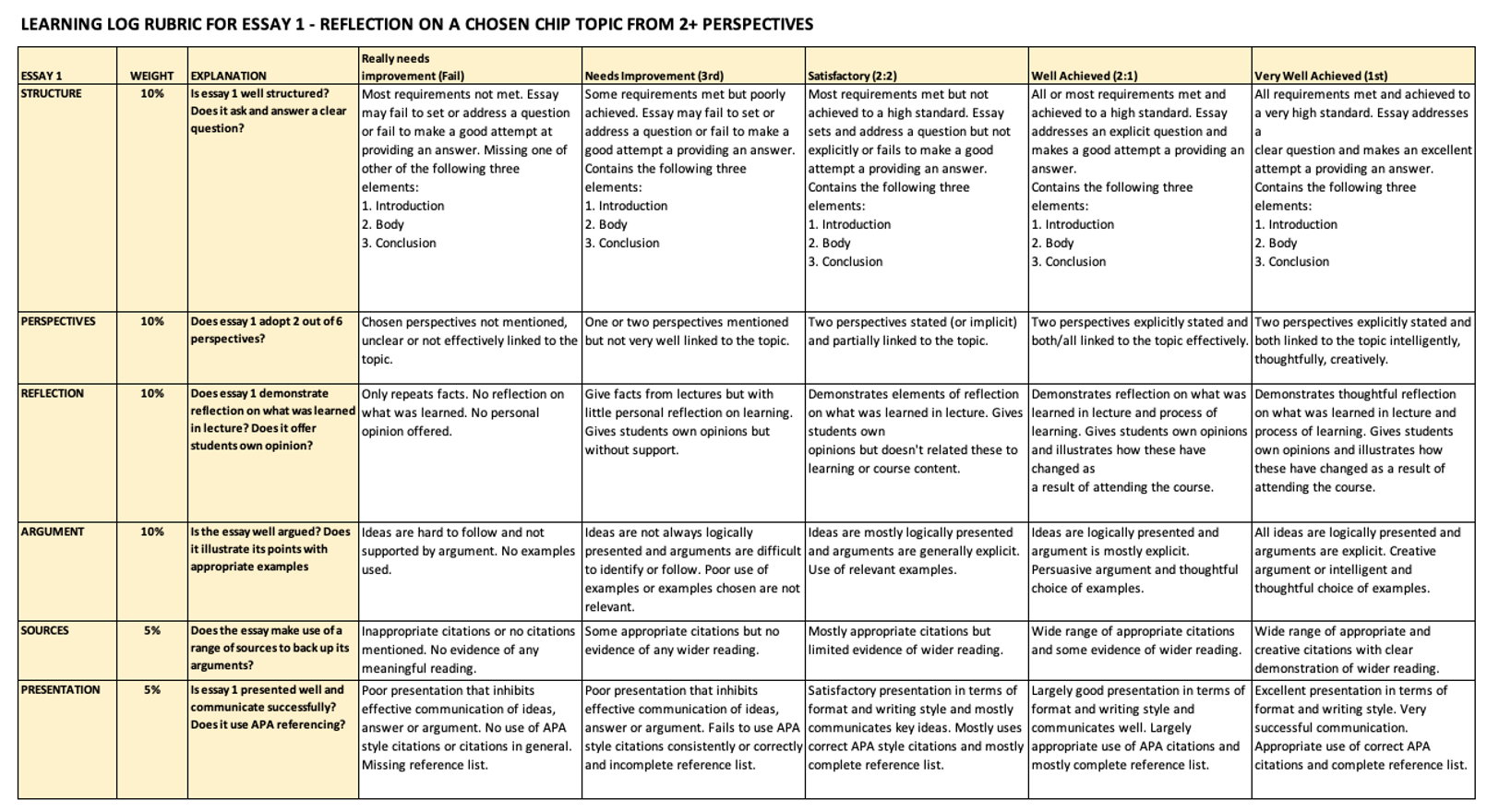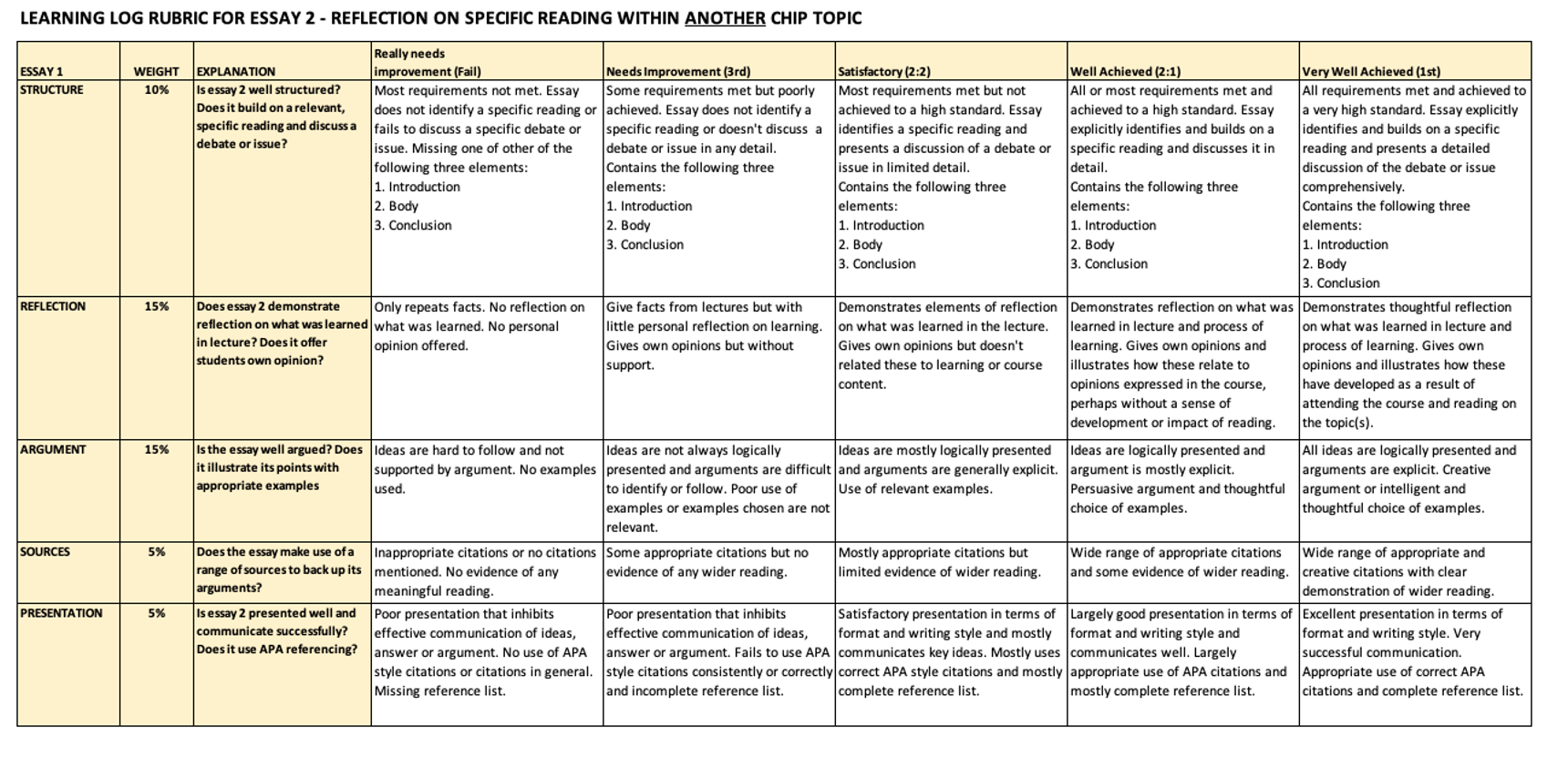Lecture16
CHIP Assessment Overview
Overview of the CHIP Learning Log
CHIP Learning Log - What’s it all about?
. . .
As you become active psychological researchers - and over half way through your undergraduate training in psychology - it is important to consider the wider context of what you are doing.
Learning log? huh?
. . .
By thinking about your personal learning journey, you take an objective ‘outside’ perspective on this important process. By doing so, it aids meta-learning - or the process of ‘learning to learn’.
. . .
Whether you end up being a ‘psychologist’ or not, your degree is an important opportunity to demonstrate your ability to learn (knowledge AND skills)
The topics already introduced this year include:
- What is Science?
- Artificial Intelligence
- Open Science & Open Practices
- Qualitative &/Versus Quantitative Research
- MeSearch
- Inclusivity
- “MyPsychology”
- Ethics
- Psychometrics and scale development
- Bias in research
- Replication Crisis (& Theory Crisis)
- Meta-cognition & Reflective practice
The topics approaching this year are:
- Psychology and science (available now)
- Evolution and Evolutionary Psychology
- Cultural Evolutionary Psychology
- Philosophy of Science
- Statistics and their dark history
But you are welcome to choose more broadly:
If you can argue that your choice of topic meets the brief
AND you deal with the topic in line with the rubric
You are welcome to email me and confirm suitability
Assessment
Coursework is designed to allow you to engage with the ‘big picture’ of your degree
Think about how these issues link into psychology as a discipline, and how they relate to your own thoughts about what psychology is or should be
Two essays of max 700 words each
Marks are awarded for reflection, evidence of learning and bring topics together. Please see marking criteria for both essays.
Not a regurgitation of facts.
They are designed to be personal and reflective – embrace this aspect!
Essay 1
Essay 1 is based on the content of ONE of the FOUR topics and should adopt at least two of the following 6 ‘perspectives’.
STU - Your interests or experience as a student of psychology;
TRN - Your role as a trainee psychologist;
RES - A planned research project in or after your degree;
HIS - The history of Psychology and related disciplines;
PRA - Reporting on the Practice or Culture of Psychology;
SCI - Assumptions about science and how it relates to psychology
Essay 1 tips
- Ask a specific question – and answer it.
- Intro, body, conclusion structure.
- Reflect on the topic and give your own opinion as to the answer!
- Present a journey in your learning or appreciation of the topic
- Ensure your answer is argued using examples
- Use evidence in your argument from a range of sources, ideally do some strategic wider reading
- Present and reference it well
Essay 2
Essay 2 should focus on at least one of the OTHER topics covered in the course.
This answer should focus on a primary reading associated with the lectures and then any further reading you have done (strongly encouraged).
You must identify that primary reading explicitly in the essay itself.
You should not simply restate what the authors thought or found, but rather briefly summarise the point that stimulated your interest in the reading and use that as a springboard to discuss the topic or issue.
Think about your perspective on the issues.
What do you think about this debate or issue? We want to know!
And what do you think are interesting directions for psychologists to take this debate or issue in the future?
Essay 2 tips
- Explicitly identify a single initial reading and build upon that.
- Discuss a debate or issue that you think is interesting or important
- Give your own opinion and how this has developed or changed as a result of the lecture, the course more widely, and/or the reading.
- Argue your opinion explicitly, own it and back it up with examples
- Use evidence in your argument from a range of sources, ideally do some strategic wider reading
- Present and reference it well
Overlapping content
You can combine across different topics in Essay 2 (e.g., you could talk about Evolution and Consciousness, or Inclusivity and Meta Learning), and thinking about links between topics is strongly encouraged.
However, the material covered in Essay 2 must be different from Essay 1. Students will be penalised for covering identical topics.
Submission
Deadline is 10am Friday 21st April – ±3 weeks after the end of term
Both answers should be written in essay-style prose (e.g., with APA references where you refer to sources) put in a single document and submitted to the coursework submission page.
Max 700 words per answer (references not included in word count)
Remember that this only accounts for a smaller portion of the module grade (15%). Should hopefully be an enjoyable way to reflect on issues on the course you found interesting.
Mini-Dissertation Reflective Account
Just a quick reminder about the compulsory reflective account at the end of the Mini-Dissertation.
If you do not supply this, your Mini-Dissertation is not complete and this impacts the mark.
It is NOT an opportunity to gripe about group work, or to try to obtain favourable marks.
It’s another opportunity to reflect on your learning journey.

